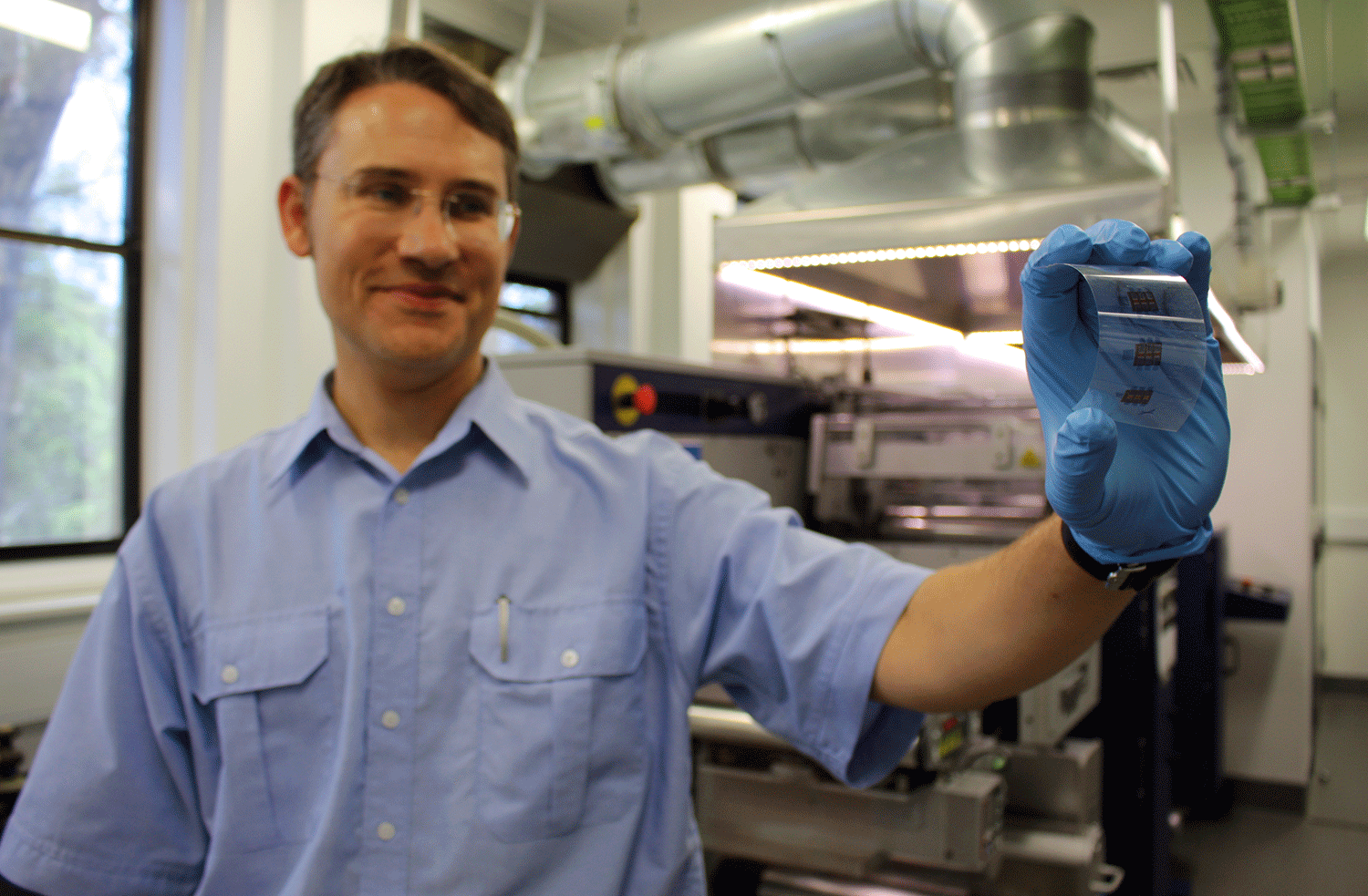Researchers print needle-free glucose tests
Researchers at the University of Newcastle have developed a saliva-based glucose test using a 2D printer, which could spell the end of needles and blood tests for diabetics.
 The simple-to-use test, which detects concentrations of
glucose and is up to 100 times more sensitive than current blood sensors, integrates
bio-sensors or chemical signatures into printed transistors.
The simple-to-use test, which detects concentrations of
glucose and is up to 100 times more sensitive than current blood sensors, integrates
bio-sensors or chemical signatures into printed transistors.
Professor Paul Dastoor and his team at the University's Centre of Organic Electronics focus on the development of new electronic devices at the intersection between semi-conductors and plastics, addressing a diverse range of global issues including the energy crisis and mining safety.
The research team behind the first energy-efficient devices from water-soluble solar paint materials is now turning its attention to diabetes and another revolutionary device, which may mean needle-free glucose tests.
"By 2020 it is predicted there will be 500 million people in the world with diabetes. The creation of the non-invasive test for diabetics has been the Holy Grail in diabetes research for decades," Professor Dastoor said.
The usual way of testing for glucose relies on a finger prick to draw blood for testing, however many diabetics find needles unpleasant and tend to avoid measuring their levels as often as they should.
"Because we have developed paint with semi-conducting particles, we can now 'download' electronic designs, print them relatively cheaply from an inkjet printer and, in principle, build any electronic device," Professor Dastoor said.
"On this principle, we have developed a saliva-based test of glucose levels for diabetic patients using a reel to reel printer, potentially making blood tests a thing of the past.
"We print electrical components using an ink that is a semi-conductor, mixing in the enzyme which will detect the presence and level of glucose when a diabetic places a sample of their saliva on the test.
Estimated to cost as little as one cent per test, Professor Dastoor said he and his team were now investigating the logistics of printing the tests on a large scale.
Professor Dastoor and his team's research has implications for the medical sector and for communities around the world."
Sensors that can identify different chemical signatures have potential for applications in many other fields," Professor Dastoor said.
Contact
- Carmen Swadling, Media and Public Relations.
- Phone: 02 4921 5577.
Related news
- Launch of the School Students’ Statement on the Right to a Healthy Environment
- Funding boost to technology for lower emission steel
- Newcastle team on mission to improve childhood cancer outcomes
- Shanae’s passion for caring delivers her dream to work in health
- Food and nutrition degree serves Keren a rewarding career
The University of Newcastle acknowledges the traditional custodians of the lands within our footprint areas: Awabakal, Darkinjung, Biripai, Worimi, Wonnarua, and Eora Nations. We also pay respect to the wisdom of our Elders past and present.